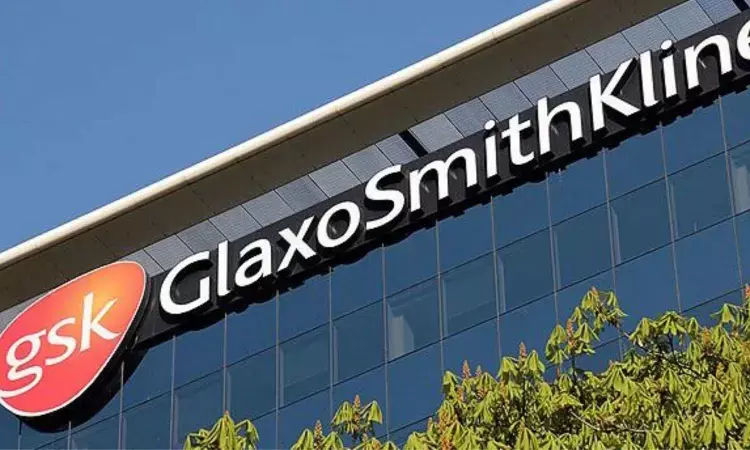- Home
- Medical news & Guidelines
- Anesthesiology
- Cardiology and CTVS
- Critical Care
- Dentistry
- Dermatology
- Diabetes and Endocrinology
- ENT
- Gastroenterology
- Medicine
- Nephrology
- Neurology
- Obstretics-Gynaecology
- Oncology
- Ophthalmology
- Orthopaedics
- Pediatrics-Neonatology
- Psychiatry
- Pulmonology
- Radiology
- Surgery
- Urology
- Laboratory Medicine
- Diet
- Nursing
- Paramedical
- Physiotherapy
- Health news
- Fact Check
- Bone Health Fact Check
- Brain Health Fact Check
- Cancer Related Fact Check
- Child Care Fact Check
- Dental and oral health fact check
- Diabetes and metabolic health fact check
- Diet and Nutrition Fact Check
- Eye and ENT Care Fact Check
- Fitness fact check
- Gut health fact check
- Heart health fact check
- Kidney health fact check
- Medical education fact check
- Men's health fact check
- Respiratory fact check
- Skin and hair care fact check
- Vaccine and Immunization fact check
- Women's health fact check
- AYUSH
- State News
- Andaman and Nicobar Islands
- Andhra Pradesh
- Arunachal Pradesh
- Assam
- Bihar
- Chandigarh
- Chattisgarh
- Dadra and Nagar Haveli
- Daman and Diu
- Delhi
- Goa
- Gujarat
- Haryana
- Himachal Pradesh
- Jammu & Kashmir
- Jharkhand
- Karnataka
- Kerala
- Ladakh
- Lakshadweep
- Madhya Pradesh
- Maharashtra
- Manipur
- Meghalaya
- Mizoram
- Nagaland
- Odisha
- Puducherry
- Punjab
- Rajasthan
- Sikkim
- Tamil Nadu
- Telangana
- Tripura
- Uttar Pradesh
- Uttrakhand
- West Bengal
- Medical Education
- Industry
GSK Nucala approved in China for use in severe asthma with eosinophilic phenotype

London: GSK plc has announced that the China National Medical Products Administration has approved Nucala (mepolizumab), as an add-on maintenance treatment for severe eosinophilic asthma in adults and adolescents aged 12 years and older.
Asthma is a major health burden in China affecting an estimated 46 million adults. Of those, approximately 6% experience severe asthma, which confers the most substantial impact on daily living, is associated with an increased risk of exacerbations requiring hospitalisation, and higher likelihood of potentially fatal asthma attacks. In China, 15.5% of people with asthma have experienced an exacerbation requiring a hospital visit in the preceding 12 months.
Kaivan Khavandi, Senior Vice President, Global Head, Respiratory and Immunology, R&D, said, “We are delighted with this approval, supported by evidence in a Chinese population. Millions of people in China with severe eosinophilic asthma can now potentially benefit from the advance in management that Nucala could offer – a testament to GSK’s ongoing commitment to redefine respiratory disease management globally.”
Guidelines for bronchial asthma prevention and management (2020 edition) from the Asthma group of the Chinese Thoracic Society reference the current unmet need among Chinese patients with this condition. The guidelines also reference evidence for targeted biologic therapy that could reduce exacerbations, emergency or hospitalisation rates, oral corticosteroid use, and also improve asthma control and lung function.
The approval for use in severe asthma is based on positive data from a separate phase III trial among Chinese patients. The results from the Chinese study reinforce existing data for mepolizumab in patients with severe asthma. Adverse events were consistent with the known safety profile for mepolizumab with no new emerging safety issues specific to Chinese patients. The global clinical development programme included four key clinical trials – DREAM, MENSA, SIRIUS and MUSCA. These trials established the efficacy and safety profile of mepolizumab in patients with severe asthma with an eosinophilic phenotype with safety data coming from pivotal, long-term and real-world studies.
The 52-week phase III trial in Chinese patients with severe asthma studied the effect of mepolizumab relative to placebo, as add-on on the primary endpoint of reduction in the annual rate of clinically significant exacerbations (CSE). Patients in the trial who received mepolizumab compared to those who received placebo experienced 65% fewer CSE’s (0.45 vs.1.31 events/year, HR [95% CI]: 0.35 [0.24, 0.50] p<0.001), had a 70% reduction in the frequency of CSE per year requiring hospitalisation or Emergency Department (ED) visits (RR [95% CI] 0.30 [0.12,0.77]; p=0.012), and a significantly increased period of time before patients experienced the first CSE requiring hospitalisation or ED visits (3.4% vs. 12.6%; HR [95% CI]: 0.26 [0.10, 0.69]; p=0.007).
This is the second indication for mepolizumab in China, with approval for use in adults with eosinophilic granulomatosis with polyangiitis (EGPA) received in 2021. Epidemiological, clinical and pathophysiological studies show that patients with EGPA usually also have asthma, which is often severe).
Read also: GSK enters exclusive license agreement with Hansoh for HS-20093
Ruchika Sharma joined Medical Dialogue as an Correspondent for the Business Section in 2019. She covers all the updates in the Pharmaceutical field, Policy, Insurance, Business Healthcare, Medical News, Health News, Pharma News, Healthcare and Investment. She has completed her B.Com from Delhi University and then pursued postgraduation in M.Com. She can be contacted at editorial@medicaldialogues.in Contact no. 011-43720751
Dr Kamal Kant Kohli-MBBS, DTCD- a chest specialist with more than 30 years of practice and a flair for writing clinical articles, Dr Kamal Kant Kohli joined Medical Dialogues as a Chief Editor of Medical News. Besides writing articles, as an editor, he proofreads and verifies all the medical content published on Medical Dialogues including those coming from journals, studies,medical conferences,guidelines etc. Email: drkohli@medicaldialogues.in. Contact no. 011-43720751


